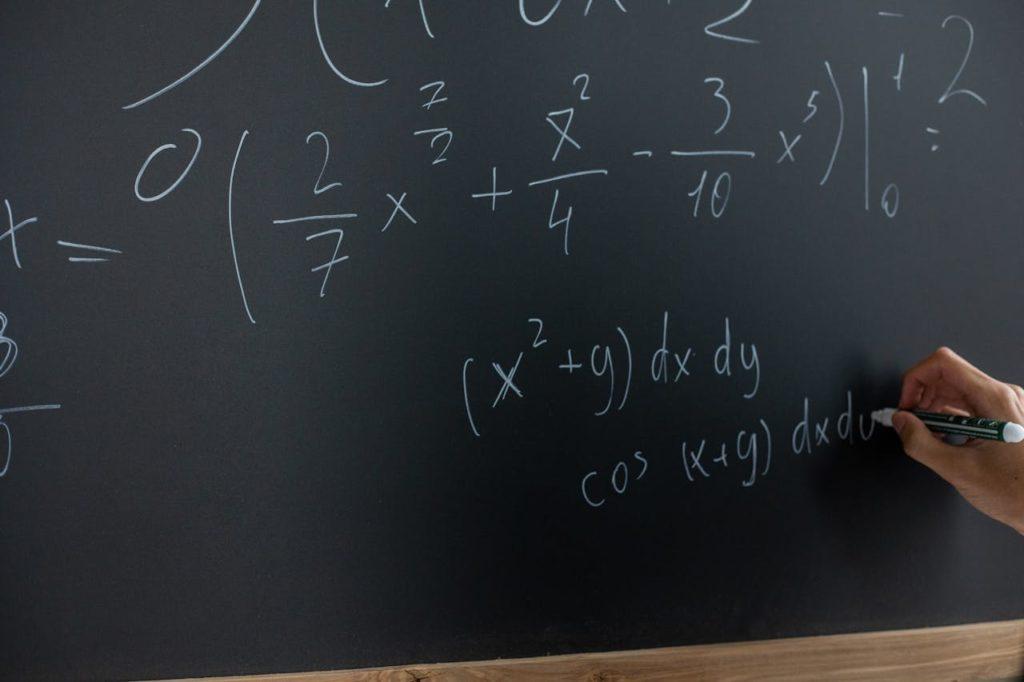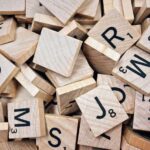As a seasoned IB writer and tutor with years of experience in the intricate world of the International Baccalaureate (IB) curriculum, I’ve come to appreciate the unique challenges and opportunities presented by the Theory of Knowledge (TOK) course. Among the Areas of Knowledge (AOK), mathematics holds a special place. In this article, I aim to share insights on mathematics AOK, drawing from my extensive background and a deep understanding of the general IB criteria.
Understanding TOK and Areas of Knowledge
In my view, it’s the structural core of the International Baccalaureate program, thoughtfully designed to prompt students to question the basis of knowledge and explore how we come to understand what we know. Within this context, mathematics AOK holds a special allure. You might ask why. From my perspective, mathematics provides a unique perspective through which we can examine the nature and process of acquiring knowledge.
Its uniqueness lies in its universal language and logical structure, which offer clarity and precision seldom found in other areas. Mathematics is not just a tool for calculation or problem-solving but a profound medium for understanding the principles underpinning our perception of truth and reality. Engaging with mathematics AOK within the TOK framework encourages students to reflect on the role of logic, proof, and abstraction in constructing knowledge, thereby illuminating the intricate ways we interpret the world around us.
However, the study of mathematics as an AOK has its challenges. Many students grapple with abstract concepts that seem disconnected from their immediate experiences. Additionally, there exists a common misconception that mathematical knowledge is purely objective and free from bias.
According to general IB criteria, a critical exploration of mathematics in TOK encourages students to question these assumptions and examine how mathematical knowledge is constructed, communicated, and interpreted within various cultural and historical contexts. I believe this inquiry deepens students’ understanding of mathematics and highlights the inherently human aspects of mathematical innovation.
Moreover, mathematics serves as a bridge to other AOKs, offering a unique perspective on the interconnectedness of knowledge. Students can appreciate the synergies between different knowledge domains by exploring the mathematical underpinnings of artistic patterns, the statistical analysis in human sciences, or the quantitative methods in natural sciences.
The Role of Mathematics in the TOK Course
Mathematics distinguishes itself by relying on logical reasoning and proof to establish truths. Unlike the empirical evidence that underpins the natural sciences or the interpretative analyses characteristic of the humanities, mathematical knowledge is derived from axioms and established through deductive reasoning.
Mathematics is more than a mere collection of numbers or equations because it embodies a language in its own right. According to general IB criteria, this Area of Knowledge presents a formidable challenge to students, urging them to critically evaluate the logical structure of arguments and the bedrock upon which we construct theoretical frameworks.
From my experience, immersing in mathematics AOK within the TOK helps us build a disciplined approach to reasoning that is invaluable across diverse fields of inquiry. By the way, engaging with mathematics in TOK cultivates a myriad of skills and insights:
- Critical Thinking. Mathematics encourages students to dissect arguments and identify underlying assumptions, promoting a deeper understanding of complex issues and TOK key concepts.
- Abstract Reasoning. It nurtures the ability to conceptualize abstract entities and relationships, enhancing cognitive flexibility.
- Problem-Solving Skills. Mathematics equips students with strategies to tackle problems methodically, fostering innovation and creativity.
- Logical Deduction. It reinforces the capacity to derive conclusions from premises through logical steps, strengthening argumentative skills.
- Interdisciplinary Connections. Mathematics reveals patterns and principles that intersect with other areas of knowledge, encouraging holistic learning.

In my perspective, engaging with this Area of Knowledge allows students to recognize and value the sophistication and practicality of mathematical thought, equipping them to confidently address the complexities of the contemporary world with keen insight.
Key Concepts in the Mathematics AOK
I’ve had the opportunity to closely examine the intricacies of various Areas of Knowledge, with mathematics holding a particular fascination for me. Here, I aim to share some key concepts within the mathematics AOK, their importance, and their profound impact on students’ learning experiences.
Certainty and Proof
In mathematics, the concepts of certainty and proof are fundamental pillars. From my experience, grappling with these ideas challenges students to consider what it means to truly “know” something in mathematical terms. According to general IB criteria, the rigorous logical frameworks underpinning mathematical proofs starkly contrast the more subjective nature of knowledge in other AOKs. As I know, this distinction fascinates and deepens students’ appreciation for the discipline.
Patterns and Relationships
Another cornerstone of mathematics AOK is the study of patterns and relationships. These concepts encourage students to identify and analyze the recurring themes and connections that mathematics reveals about our world. In my view, this aspect of mathematics fosters a sense of wonder and curiosity, driving home the realization that mathematics is deeply connected with our reality.
Abstract Reasoning
Abstract reasoning is a cognitive skill that mathematics AOK extensively develops. As I understand it, this involves looking beyond the concrete and tangible and venturing into abstract concepts and ideas. According to general IB criteria, this skill is crucial within the scope of mathematics and across all areas of knowledge, enhancing students’ ability to think critically and creatively about complex problems.
Application and Real-World Relevance
Lastly, applying mathematical concepts to real-life situations is a significant theme within this AOK. From my experience, demonstrating the practical utility of mathematical reasoning helps bridge the gap between theoretical knowledge and its implementation in various contexts. In real life, mathematical models and principles underpin advancements in technology, economics, and science. This practical application of mathematics AOK illustrates how theoretical knowledge can be harnessed to solve complex problems.
How to Use Mathematics AOK in TOK Essay
Incorporating mathematics as an AOK in your Theory of Knowledge essay can enhance your exploration of how we know what we claim to know. Here’s a structured approach to help you harness the power of mathematical reasoning and perspectives.
Remember to use transition words and phrases to ensure the smooth flow of ideas throughout your essay. Additionally, vary your sentence structures to maintain the reader’s interest and adhere to the principles of effective writing.
1. Introduce Mathematics AOK with a Clear Thesis
Start by defining mathematics as an AOK and establish its relevance to your essay’s thesis. Highlight the unique characteristics of mathematical knowledge, such as its reliance on deductive reasoning, proofs, and logical coherence. In my experience, setting a clear foundation for how mathematics intersects with your TOK essay topic is crucial for a coherent argument.
2. Explore the Nature of Mathematical Knowledge
Dig into the epistemology of mathematics by examining how knowledge is generated and validated within the discipline. Discuss concepts like axioms, theorems, and proofs to showcase the rigorous methods of establishing mathematical truths. From my viewpoint, illustrating these methods can help underline the certainty and objectivity often associated with mathematical knowledge.
3. Discuss the Application and Limitations of Mathematics
Reflect on applying mathematics in real-world contexts and other areas of knowledge, such as the natural sciences, economics, and technology. It’s vital, from my standpoint, to also consider the limitations and challenges of applying mathematical models to complex, real-world problems. This exploration can reveal the nuanced relationship between abstract mathematical concepts and their practical utility.

Need help with your IB TOK essay?
From research and analysis to structuring and editing, our skilled mentors will be by your side, helping you write an exceptional TOK essay that meets the word count and stringent IB criteria.
4. Examine the Role of Mathematics in Knowledge Construction
Consider how mathematics contributes to our understanding of the world and the construction of knowledge in other disciplines. The interdisciplinary connections between mathematics and subjects like physics or art can offer profound insights into the interconnectedness of knowledge. Discussing these connections can illuminate the role of mathematics in fostering a deeper understanding of the world.
5. Analyze Perspectives and Biases in Mathematics
Challenge the perception of mathematics as a purely objective and universal language. Explore how cultural, historical, and personal perspectives influence mathematical concepts, notation, and application. According to general IB criteria, acknowledging the subjective elements within the mathematics AOK can enrich your essay by presenting a more balanced view of mathematical knowledge.
6. Conclude with Reflective Insights
End your essay with a reflective conclusion that encapsulates the significance of mathematics AOK in understanding knowledge and its limitations. Share your insights on how engaging with mathematics has influenced your perspective on knowledge and learning. From my experience, a reflective conclusion can add depth to your essay, highlighting your engagement with the TOK themes.
The Bottom Line
Mathematics AOK provides an unusual and fascinating viewpoint on the TOK course by challenging students to improve their logical reasoning and critical thinking skills. Based on my considerable experience in the IB, I advise students to take on the intricacies of mathematics AOK, as they give invaluable skills for both academic and real-world situations. This Area of Knowledge is about more than just solving problems. It’s about understanding the foundation upon which we build our understanding of the universe.
Also, remember, if you need help with TOK essay writing, our team of IB experts is always there for you.
Luke MacQuoid
Luke MacQuoid has extensive experience teaching English as a foreign language in Japan, having worked with students of all ages for over 12 years. Currently, he is teaching at the tertiary level. Luke holds a BA from the University of Sussex and an MA in TESOL from Lancaster University, both located in England. As well to his work as an IB Examiner and Master Tutor, Luke also enjoys sharing his experiences and insights with others through writing articles for various websites, including extendedessaywriters.com blog
- Transition Words For An Argumentative Essayby Narmeen
- Figurative Language Examples in Literature – IB English Extended Essayby Narmeen
- Math Extended Essay Topicsby Luke MacQuoid
- 100+ Famous Quotes on Languageby Luke MacQuoid
- 100+ Famous Quotes on Indigenous Societiesby Luke MacQuoid
- 100+ Famous Quotes on Religionby Luke MacQuoid



